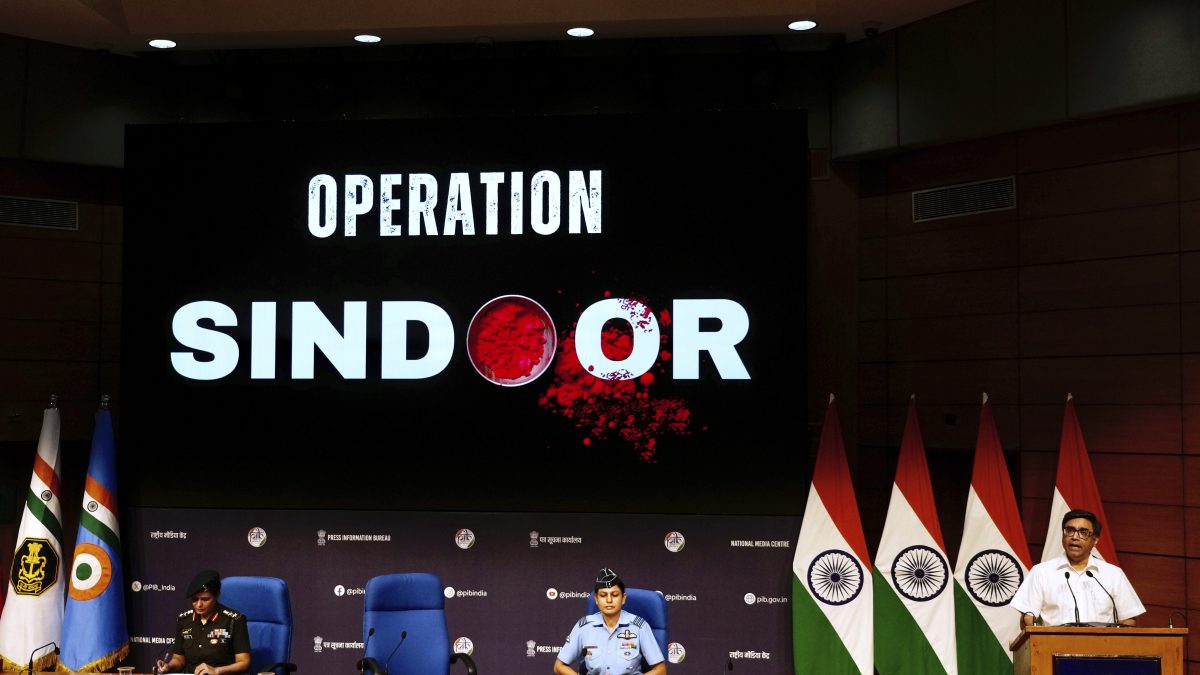Will Pakistan respond military to Operation Sindoor?
India has made it extremely difficult for Pakistan to do so.
India struck nine sites in Pakistan and Pakistan-occupied Kashmir today (May 7) in response to the Pahalgam attack in which 26 were left dead.
These jets were u
But how has India cornered Pakistan?
Let’s take a closer look
Diplomacy
India began by immediately reaching out to countries.
Sources told The Hindu that the Indian govern ment briefed nearly half a dozen countries including the US, the UK, Saudi Arabia, UAE and Russia in the immediate aftermath of the attack.
The leaders of these nations have been in touch with Prime Minister Narendra Modi over the past couple of weeks.
Follow all updates on Operation Sindoor LIVE here
As per CNBC, India spoke to both permanent and non-permanent members of the United Nations Security Council (UNSC).
National Security Adviser Ajit Doval spoke to US NSA and Secretary of State Marco Rubio, UK NSA Jonathan Powell, Saudi NSA Musaid Al Aiban, UAE NSA HH Sheikh Tahnoon and Secretary General of the UAE National Security Council Ali Al Shamsi, Japanese NSA Masataka Okano, Russian NSA Sergei Shoigu, Chinese Foreign Minister Wang Yi, and French diplomatic adviser Emmanuel Bonne.
Foreign Secretary Vikram Misri also briefed diplomats from 13 United Nations Security Council (UNSC) member nations.
Foreign minister S Jaishankar also held a series of phone calls with counterparts from around the world.
“Had a telecon with FM Takeshi Iwaya of Japan. Appreciate the strong condemnation of the April 22 terrorist attack. Discussed India’s action against the cross-border terrorist infrastructure this morning,” Jaishankar wrote.
He also held a joint call with French Foreign Minister Jean-Noël Barrot and Germany’s Johann Wadephul. “Appreciated their solidarity and support in the wake of the Pahalgam terrorist attack. Discussed ensuring zero tolerance for terrorism,” he wrote on social media.
After his conversation with Spain’s Foreign Minister José Manuel Albares, Jaishankar wrote on X, “Discussed India’s firm and measured response to cross-border terrorism.”
Terror bases
India also emphasised that only terror bases had been targeted during ‘Operation Sindoor’ on May 7.
The Defence Ministry, in a statement issued at 1:44 am, confirmed the launch of ‘Operation Sindoor’, aimed at dismantling terrorist infrastructure used to plan and direct attacks on the Indian soil.
This included strikes on Bhawalpur, a stronghold of the Jaish-e-Mohammad (JeM) terror outfit and Lashkar-e-Taiba’s base Muridke.
“A little while ago, the Indian Armed forces launched ‘Operation Sindoor’ hitting terrorist infrastructure in Pakistan and Pakistan-occupied Jammu and Kashmir from where terrorist attacks against India have been planned and directed,” the Indian Army said in its initial statement.
“India has demonstrated considerable restraint in the selection of targets and method of execution,” the statement from the Indian government read.
As per The Hindu, the Ministry of External Affairs said India had targeted “credible leads” of those involved in the Pahalgam attack.
“India’s actions have been focused and precise. They were measured, responsible and designed to be non-escalatory in nature. No Pakistani civilian, economic or military targets have been hit. Only known terror camps were targeted,” the Indian Embassy in Washington said.
The MEA added that it hoped that “Pakistan would take action against terrorists and the infrastructure that supports them”.
“Instead, during the fortnight that has gone by, Pakistan has indulged in denial and made allegations of false flag operations against India”.
During a press conference on Wednesday, Wing Commander Vyomika Singh said, “Operation Sindoor was launched by the Indian Armed Forces to deliver justice to the victims of the Pahalgam terror attack and their families. Nine terrorist camps were targeted and successfully destroyed… The locations were so selected to avoid damage to civilian infrastructures and loss of any civilian lives”.
New Delhi’s action thus narrows Islamabad’s choice of ‘targets’ in India.
Threat of retaliation
India has also made it clear that any military response from Pakistan will result in retaliation.
“NSA briefed his counterparts on actions taken and method of execution, which was measured, non-escalatory and restrained. He emphasised that India had no intent to escalate but was well prepared to retaliate resolutely should Pakistan decide to escalate,” an official was quoted as saying by The Hindu.
Doval told his counterparts in various countries that India has no intent to escalate tensions but is prepared to “retaliate resolutely” if Pakistan does so, officials have said.
What do experts say?
They think that some response from Pakistan is inevitable.
“Pakistan’s response is sure to come. The challenge would be to manage the next level of escalation. This is where crisis diplomacy will matter,” Ajay Bisaria, a former Indian high commissioner to Pakistan, told BBC.
“Pakistan will be getting advice to exercise restraint. But the key will be the diplomacy after the Pakistani response to ensure that both countries don’t rapidly climb the ladder of escalation.”
Ejaz Hussain, a Lahore-based political and military analyst, added that strikes were “largely anticipated given the prevailing tensions”.
“Given the Pakistani military’s media rhetoric and stated resolve to settle the scores, retaliatory action, possibly in the form of surgical strikes across the border, appears likely in the coming days,” Hussain told the website.
)